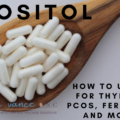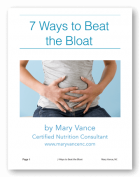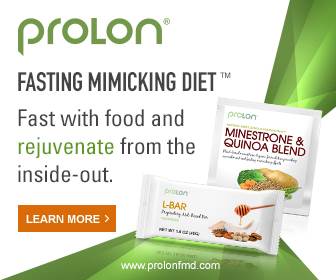As most of you know, I am not a big fan of hormonal birth control. No, I’m not trying to set women’s rights back 40 years; I am all for non-hormonal forms of birth control (condoms, IUD, other barrier methods). But women can have serious hormonal and other side effects from taking the pill or using the ring, the patch, or hormonal implants.
With Seasonale, you have the option of menstruating only 4 times a year. It offers the same synthetic estrogen and progesterone as the regular pill, but you take it straight through for 84 days instead of 21, so you only get a period once every 3 months.
Hormonal birth control works by essentially tricking the body into thinking it’s pregnant, so that the ovary lies dormant and never releases an egg. It keeps you hormonally locked into the luteal phase (second half) of the menstrual cycle so that the brain does not signal for an egg to be released (ovulation). The period you get on the pill is not a real ‘period’ at all: it’s actually just breakthrough bleeding, because the hormones that cause the uterine lining to build up for a real period have been suppressed.
So here’s the thing. There are plenty of pros (may prevent some reproductive cancers) and cons (can cause high blood pressure, high blood sugar, stroke, blood clots) to the pill. But at the end of the day, you’re taking synthetic hormones, and they effect every woman differently because we are all have biochemically different. The pill can contribute greatly to estrogen dominance, which is implicated in breast cancer, infertility, endometriosis, and menstrual irregularities. And there is still a lot of controversy surrounding the pill and breast cancer.
Seasonale: Better Birth Control?
As far as Seasonale goes, it’s too early to tell what any consequences may surface. It has only been on the market a short time and was only tested for a year. Do you want to participate in the human experiment? You’re ingesting 23 percent more synthetic hormone, which can increase side effects and long-term adverse hormonal effects.
Using potent hormones non-stop also deprives a woman of the only naturally-occurring means of ridding her body of excess stored iron. Excess stored iron is a risk factor for heart attacks and strokes. It can also be difficult to ensure that you are not pregnant without a monthly period, and even though the pill is 99 percent effective when taken as directed, there is a window for error.
The data from Seasonale clinical trials show that many women, especially in the first few cycles of use, had more unplanned bleeding and spotting between the expected menstrual periods than women taking a conventional 28-day cycle oral contraceptive. Worth it?
Hormonal Birth Control
Birth control is a very personal issue. But do be aware that taking a 3-month dose of synthetic hormones can lead to long-term estrogen dominance, and that can put you at risk for infertility and even certain cancers. I would strongly discourage women with breast cancer in the immediate family (sibling, mother) to avoid hormonal birth control.
Read my post on how and why to stop taking the pill here.
Here’s another thing. Why must we tinker with nature? Menstruation is the essence of the cyclical rhythm that connects women with their bodies and the reproductive cycle. People today are very disassociated with their bodies and their connection to nature and their own natural rhythms. We’re socialized to believe bodily functions are “dirty” or embarrassing. This pill is the perfect example: using a synthetic substance to suppress your body’s natural rhythm in order to avoid the “inconvenience” of a period. I believe the more we tune into ourselves, the healthier we are, both physically and mentally.
Food for thought.

Mary Vance is a Certified Nutrition Consultant and author specializing in digestive health. She combines a science-based approach with natural therapies to rebalance the body. In addition to her 1:1 coaching, she offers courses to help you heal your gut and improve your health. Mary lives in San Francisco and Lake Tahoe in Northern California. Read more about her coaching practice here and her background here.








I stopped taking BCPs about a year ago and am happy I did for the reasons outlined in your article- mainly that I didn’t want to be pumping hormones into myself. I do, however, remember one big reason I started taking them when, once a month, the day of awful pain comes and I am hating life.
Of course, the larger reason for wanting to take them was to prevent unwanted pregnancy. And even used them in tandem with other methods because that’s how worried I was about getting pregnant. I wonder what difference it would have made on my life to have had a baby years ago vs what the additional hormones did (or may still be doing even now that I’m off them) to my body. That’s an interesting question- and the reality of the situation for many women.
Thanks for this post.
Hi Diane,
thanks for this thoughtful comment. You mention 2 of the main reasons women use hormonal birth control: prevent pregnancy and lessen period pain. Debilitating cramps are not normal, even though we are socialized to believe it is part of “being a woman.” Testing and correcting hormone balance (low progesterone?) helps, as does uncovering other possible reasons for the pain: low thyroid? diet? adrenal hormones? It sucks that women are saddled with the responsibility of taking a pill and that there aren’t many good alternatives. It forces us to be more aware of our bodies and cycles.